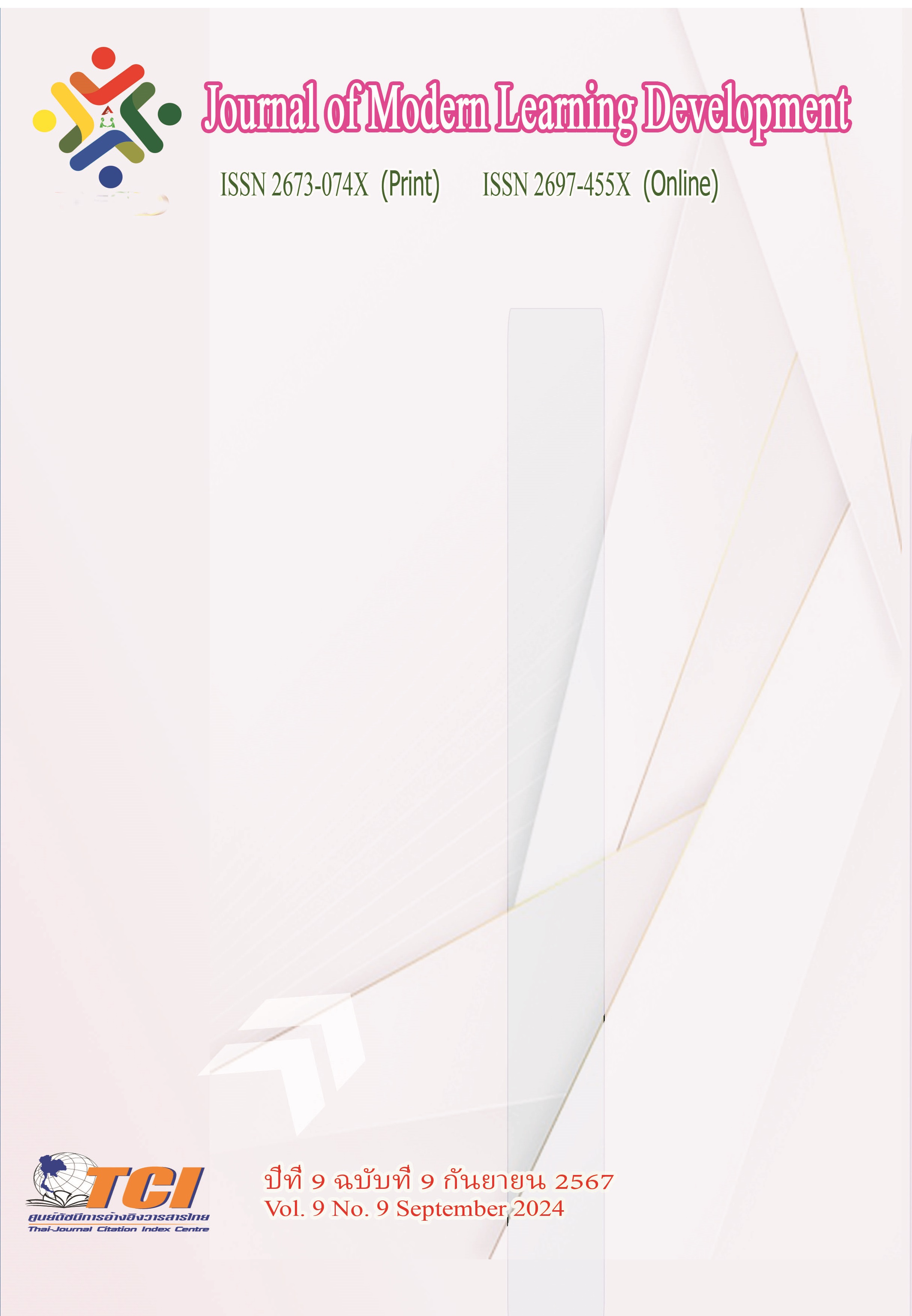The Happiness Management in the Digital Age of Personnel in Thai justice
Main Article Content
Abstract
The rapid changes in the digital age are impacting work processes, behaviors at work, and happiness at work. The objectives of this research were to study (1) the problems of working in the digital age of personnel, (2) the motivation that leads to happiness at work, and (3) the happiness management at work in the digital age of personnel in Thai justice. The method of qualitative research was used, and a key informant selection was purposive random sampling with a total of 24 persons. Data were collected from academic documents, in-depth interviews, and focus group discussions. The instruments used were a semi-structured interview form. The content was analyzed and synthesized, and information was presented in a descriptive form.
The results of research were as follows:
1) A study of the problems of working in the digital age of personnel in the Thai justice personnel have problems adapting to using new technologies at work, lack of equality in the workplace, and unable to maintain a work-life balance.
2) A study of motivations that lead to happiness at work among personnel in the Thai justice found that maintaining work-life balance, equality in the workplace, and receiving appropriate compensation were motivations that led to happiness at work.
3) A study of the happiness management at work in the digital age of personnel in the Thai justice found that the dimensions of psychological capital and emotional quotient contribute to employees' greater happiness at work.
The knowledge of happiness management at work in the digital age of personnel can be applied to develop policies and create happiness at work of personnel for sustainable benefits in maintaining the personnel and increasing organizational efficiency.
Article Details
References
Abebe, D. W., & Singh, D. P. (2023). The relationship between emotional intelligence, job satisfaction, and job performance: empirical evidence from public higher education institutions. European Journal of Business and Management Research, 8 (3), 45-52.
Allen, T. D., & Finkelstein, L. M. (2019). The impact of work-life balance on employee happiness and well-being: A longitudinal study. Journal of Applied Psychology, 104 (4), 720-733.
Bhatnagar, V. R., Singhi, M., & Gupta Rajen, K. (2012). From Performance Management System to Happiness Management System. In 12th IHRM Conference: 10th to 13th December, Management Development Institute: Gurgaon.
Chaiprasit, K., & Santidhiraku, O. (2011). Happiness at work of employees in small and medium-sized enterprises, Thailand. Procedia-Social and Behavioral Sciences, 25, 189-200.
Colquitt, J. A., Lepine, J. A., & Wesson, M. J. (2015). Organizational behavior: Improving performance and commitment. McGraw-Hill Education.
Firmansyah, D., & Wahdiniwaty, R. (2023). Happiness management: Theoretical, practical and impact. International Journal of Business, Law, and Education, 4 (2), 747-756.
Greenberg, J. (2011). Organizational justice: The dynamics of fairness in the workplace. APA handbook of industrial and organizational psychology, 3, 271–327.
Greenhaus, J. H. (2011). Work–family balance: A review and extension of the literature. Handbook of Occupationa Health Psychology/American Psychological Association.
Gori, A., Topino, E., Palazzeschi, L., & Di Fabio, A. (2020). How can organizational justice contribute to job satisfaction? A chained mediation model. Sustainability, 12 (19), 7902.
Guojuan, Z., Shuling, W., & Junli, Z. (2010, December). Research on the happiness management model from the perspective of psychological capital. In Proceedings of the 7 th International Conference on Innovation & Management.
Herzberg, F., Mausner, B., & Snyderman, B. B. (1959). The Motivation to Work. New York: John Wiley & Sons.
Li, S. (2024). The Role of Expectancy Theory in the Organizational Management Process in Innovative Entrepreneurial Enterprises. In International Conference on Finance and Economics, 6(1),95-104.
Luthans, F. (2015). Psychological capital and beyond. Oxford University Press.
Maslow, A. H. (1943). A theory of human motivation. Psychological Review google schola, 2, 21-28.
Mayer, J. D., Salovey, P., Caruso, D. R., & Cherkasskiy, L. (2011). Emotional intelligence. Cambridge University Press.
Milkovich, G. T., Newman, J. M., & Gerhart, B. (2014). Compensation. McGraw-Hill.
Nolzen, N. (2018). The concept of psychological capital: a comprehensive review. Management Review Quarterly, 68 (3), 237-277.
Ogunola, A. A. (2022). Quality of work-life and work-life balance as predictors of employee job satisfaction. TAZKIYA: Journal of Psychology, 10 (1), 74-84.
Ozel, A., & Bayraktar, C. A. (2018). Effect of organizational justice on job satisfaction. Springer International Publishing, (), pp. 205-218.
Ramirez-Garcia, C., Perea, J. G. Á. D., & Junco, J. G. D. (2019). Happiness at work: Measurement scale validation. Revista de Administração de Empresas, 59, 327-340.
Shore, L. M., Randel, A. E., Chung, B. G., Dean, M. A., Holcombe Ehrhart, K., & Singh, G. (2011). Inclusion and diversity in work groups: A review and model for future research. Journal of management, 37 (4), 1262-1289.
Wahdaniah, R. S., Ambalele, E., & Tellu, A. H. (2023). Human Resource Management Transformation in the Digital Age: Recent Trends and Implications. International Journal of Applied Research and Sustainable Sciences, 1 (3), 239-258.
Ward, B. (2019). The Impact of Personality on Job Satisfaction: A Study of Bank Employees in the Southeastern US. IUP Journal of Organizational Behavior, 18 (2).


